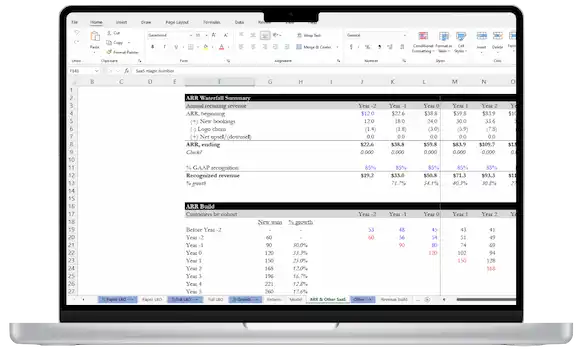Note: This article is part of a broader series on how to prepare for growth equity interviews
Networking can absolutely increase your chances of getting a role in growth equity. This is true of both pre-MBA and post-MBA roles. While some people don’t like networking or feel there aren’t good at it, there are definitely ways you can improve at this important skill.
Why networking can be hard
Networking into growth equity firms can be challenging. Not all firms or hiring managers are open to it – usually, not as a matter of firm policy, but rather some like to “outsource” the entire process to headhunters to manage all candidates inbound and outbound. I discuss this below.
Also, many people in growth equity – while open to making new connections and offering advice to prospective candidates – are just plain busy, and therefore less likely to take a coffee or Zoom without a prior relationship.
In various professional contexts, some people are hesitant engage in networking, because they don’t want to face any accusation of unfair advantage over others based on relationships. However, I believe those who build authentic relationships with people — in this case, growth equity hiring managers — deserve the advantage they get, since they are “known quantities” to the hiring firm, therefore representing a “lower risk” hire for the firm.
Targeting firms for outreach
One of the keys to successfully networking into growth equity is understanding the firm and determining whether they use a headhunter. If they outsource their recruiting to headhunters, it doesn’t mean networking will not help you, but it does mean folks at the firm may be somewhat less open to engaging outside of their formal process.
So how can we determine if firms use headhunters? Well, in general I segment the “growth equity” industry in two different groups:
- Growth funds with Private Equity roots – these tend to be bigger funds whose DNA is closer to big private equity funds that happen to focus on growth deals (e.g. General Atlantic, TA Associates, Carlyle Growth, etc).
- Growth funds with Venture Capital roots – these tend to be closer to VC funds in DNA, though the fund sizes can be just as large as other growth funds, and they sometimes sprung out of VC funds (e.g. DFJ Growth, Sequoia Growth, etc)
The above segmentation is admittedly getting blurrier these days with so many different investor types – from hedge funds to traditional private equity firms – raising growth vehicles and getting into the growth equity asset class. That said, let’s roll with this designation for now.
Generally, the more a fund can be categorized as Group 1 above, the more likely they are to use headhunters and have a very defined process. Group 2 can also use headhunters; however, in my experience I’d say it’s far more likely their hiring is relationship-driven. Because bigger funds have ongoing hiring needs (new class of associates each year), it makes sense they use recruiters more often to source candidates. Meanwhile, smaller Group 2 funds tend to have fewer openings so hiring is more irregular and therefore less likely to be run through a recruiter.
Firms with venture capital roots are also better targets for recruiting efforts, because culturally they are closer to startup and Silicon Valley culture, which has traditionally been more open to informal coffee chats and networking just for the sake of it. Many New York City finance firms (forms that have private equity roots) tend to be a bit more closed off and less open to outreach. Many even disallow employees from discussing work in public forums like Twitter.
I’d put a big caveat here that obviously there can always be exceptions to this rule. Also, even if a Group 1 fund uses a recruiter, you can still try to network your way in.
While the firm’s roots in Private Equity vs. Venture Capital is the primary dimension, you can also be on the lookout for other factors that can indicate the firm’s likelihood to use recruiters, such as size and institutionalization of the firm (i.e. the more assets under management and investing partners it has, the more likely it is to use recruiters).
How to navigate headhunters
When they are involved, headhunters are a key part of the recruiting process. You definitely want to take any meetings or calls that you have with them seriously.
That said, I wouldn’t spend a ton of time trying to network into a recruiter. Spent that energy networking into people at the actual firm itself. They will have more sway over the process and can do more for your eventual hiring than recruiters.
Still, if you KNOW a dream firm of yours typically engages a headhunter firm for their recruiting, it can’t hurt to do some outreach with them to make sure you get on their list of candidates once the firm starts interviews. To do this, look for other friends or candidates who are connected with the recruiter, and ask them to introduce you. If that fails, don’t be afraid to send cold emails to the recruiters. If you are an attractive candidate, they will be excited to connect with you.
How to network into growth equity successfully
So, how does one successfully network into a growth equity fund? The answer is: carefully! There are a couple things to keep in mind here. Growth equity, sometimes more so than private equity, is a relationship business where presentational skills and self-awareness are really important. Hiring managers are especially concerned with these skills for pre-MBA hires who will be calling CEOs on their own and representing the firm in meetings and conferences to source new deals without supervision. Therefore, a big part of the screening criteria is how well one can carry his or herself.
That’s why I recommend that you exercise a lot of discretion and self-awareness when networking into a growth equity fund. For instance, if you are emailing someone, keep the email very short (less than ~200-250 words is usually a good rule). Also, it will hurt your cause if you follow up several times in rapid succession. Usually, I wouldn’t email or contact anyone more than once every 4-6 months if they aren’t responding.
All that said, it can definitely be helpful to make contact with a few BEFORE they initiate a search. The biggest benefit is it’ll increase your odds of getting an interview. You won’t get a job from doing it (i.e. you’ll still have to earn the job once you’re in the interviews), but it can be helpful in ensuring you get an opportunity to get into the process.
So who should you reach out to? Almost always the right answer is people who you are connected to in some way already. That is to say, you may not know them but you have some affiliation through undergrad (are they an alum?), your hometown, your bank (or other previous employer), etc.
Your school’s alumni directory and LinkedIn can be your best friend here. Using LinkedIn, you can search for folks who when to your school or worked at your employer previously and who have “growth equity” in their title. Gold! Start with them. When I was recruiting, I had an informational call with an Amherst College alum (my alma mater) at General Atlantic early on in my banking career. When I was ready to recruit, I pinged her again reminding her of my interest, and she was able to make sure I got in the process!
As a rule, I always push folks (including myself) when networking to start with the most senior people you can find, and then work down. However, it can also be very helpful and a wise strategy to work out the kinks a couple times with more junior/low stress contacts. If all else fails, then by all means cold emailing can’t hurt but usually it’ll have a low hit rate.

- 88 lessons
- 18 video hours
- Excels & templates
When to do networking
If you are on the standard pre-MBA investment banking and consulting calendar, I’d probably recommend you start reaching out during the Fall or Winter if you are recruiting at bigger funds. This puts you in a position to be more “top of mind” when they ramp up their recruiting cycle in the Spring. In most other situations, I’d recommend reaching out as early as you can as recruiting cycles are less predictable, and the earlier you can build a relationship (if possible), the better.
You can also find (as I did when I recruited) that even if you have an informational call far before the firm has started recruiting, when it gets time for them to start, sometimes you can still get in the process by pinging them again to remind them of your interest at that time.
What to say in your networking emails and calls
Most of the time networking these days starts with outreach emails, so I wanted to provide some examples of what these emails could say. Below are instructions, plus a couple of the actual emails I sent to folks back in the day.
Initial outreach email
The example is an initial outreach I sent to an alum who went to my college and worked at General Atlantic, a fund that I wanted to target. The key in this email is to be very short and succinct! Honestly, if I was writing it today, I would have made this email even shorter. The reason is they will scan these quickly, and see you want to do a call, so state how you are connected and make the ask for a call quickly. Then, get out of your own way!
Dear XXXXX,
Greetings, my name is Mike Hinckley (Amherst Class of ’09). I graduated in June, and am currently a first year investment banking analyst at Deutsche Bank in NYC. I found your contact info on the Amherst Career Network.
I hope you don’t mind, but I wanted to reach out because I saw on the career network that you work at General Atlantic; I actually work in the Financial Sponsors group at DB and am very interested in learning more about careers in private equity. I’m sure you’re very busy, but if you ever have a few minutes, I would love to connect at some point to ask you a few questions about your experience at General Atlantic, and to see if you had any advice for someone interested in making the transition from banking to private equity.
Thanks for your consideration, and I hope to be in touch.
Best,
Mike Hinckley
Phone or Zoom call
If the person agrees to chat with you over the phone or Zoom, be prepared with smart questions and research on the firm. The best angle to take is to approach these calls seriously and to ASK FOR ADVICE in a way that shows you are intelligent and informed about the space. Some great advice I once got was: don’t ask for a job, ask for advice. Once folks are invested in helping you, they’ll want to try to get you a job organically!
While I don’t have the exact words that I said when I was recruiting into General Atlantic, here’s how I’d recommend opening the up call in such a situation:
Thank you for taking the time – I’m very excited to talk today.
For context, I’m an investment banking analyst at Deutsche Bank, and we went to the same college (or share some other connection), so I reached out. I’m excited to connect because I’m really interested in getting into growth equity someday, and I’d love to ask your advice on a few topics.
Also, I know General Atlantic is an incredible firm; I’d of course be thrilled to learn about roles there if it ever makes sense, but the main purpose of this call is to get your advice on a few areas.
If you follow this script, or something like it, you’ll set the proper expectations with the person about what you want from the call. You also will be telling them in a non-awkward way that you’re interested in roles someday.
In terms of what to ask for their advice on, what do you authentically want to know about? Some great topic areas I always recommend starting are:
- What are the best parts of your experience in growth equity? What are the things that could be better?
- How did you think about the kind of growth equity firm you wanted to work at? Do you have recommendations for someone like me selecting a firm?
- What was your recruiting process like? Any tips for someone like me who is also interested?
- Are there any things you wish you did in advance of growth equity recruiting to prepare?
To close the call, especially if it has gone well, I recommend circling back to the topic of recruiting. You can say something like:
Well this was fantastic. I really appreciate all the great advice. I’ve loved our conversation, and if you’re open to it, I’d love to keep you posted on my recruiting process. As I mentioned, your firm is high on my list. As we close, I wanted to ask if you have any tips or suggestions for how to approach recruiting for roles at your firm? I’d also be happy to reach back out when we’re closer to traditional recruiting season if that’s easier as well.
Follow up email during recruiting
This second email is one I sent to the same person several months later once growth equity interviews had started in full. Again, you should try to keep it very short. My email below was also me being responsive to what she’d previously asked me to do during our conversation — which was to follow up with her closer to interviews. This reminded her of who I was and that we’d talked. Ultimately, it got me into General Atlantic’s recruiting process.
Dear XXXXX,
My name is Mike Hinckley; we spoke a few months ago about careers in private equity and your experience at General Atlantic. You may recall I’m a recent alum from Amherst, and I’m currently an analyst in Financial Sponsors at Deutsche Bank.
Recruiting has apparently begun in full force this week, and per your instructions below, I wanted to send a copy of my resume for your review. Especially after our conversation, I’m extremely interested in GA, and would be thrilled to be under consideration. I’m also happy to forward this to another colleague of yours or the appropriate recruiter as well.
Thanks again for taking the time, and I hope to be in touch.
Thanks,
Mike Hinckley
Summary
Alright, that’s a wrap. Let’s break down the key suggestions:
- Networking can help your recruiting, but it can be challenging
- The smaller and more VC-like the firm, the more open they likely are to networking. Still, don’t be afraid to approach other funds if you’re inclined.
- Prioritize targeting contacts who you have some prior connection with, if at all possible
- Build a relationship as early as possible, but also don’t forget to follow up once recruiting kicks off in full
- Position your networking outreach as you wanting to ask their advice and learn about growth equity. Never ask for a job, ask for advice!


 Break Into Growth Equity
Break Into Growth Equity
